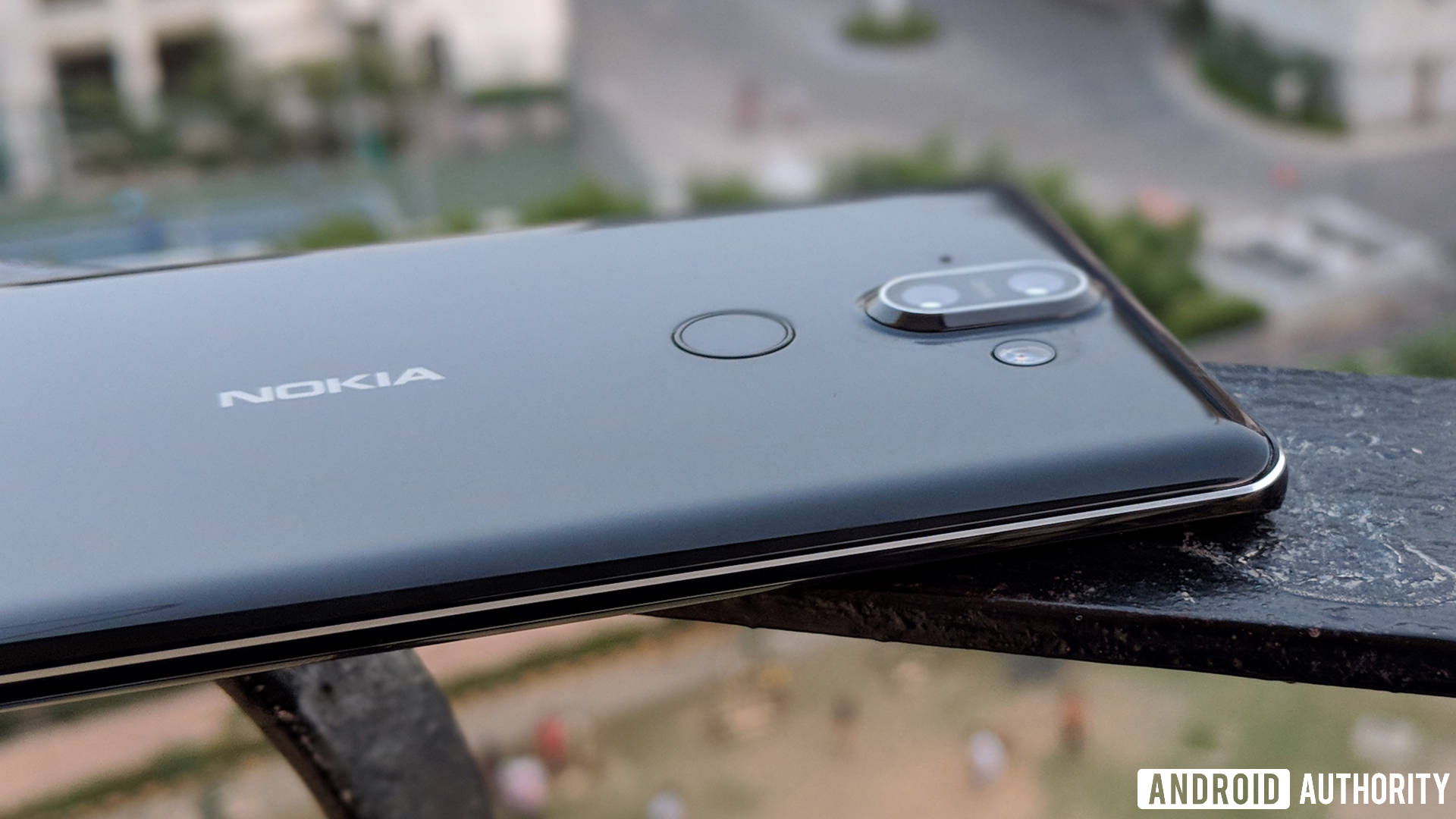Two of HMD Global's first Nokia phones are getting updates. The company announced the Nokia 3.1 and Nokia 5.1, replacing the Nokia 3 and Nokia 5, along with the Android Go-powered Nokia 2.1.
The Nokia 5.1 and 3.1 are part of the Android One program, so they should receive two years of Android updates and three years of security updates. All three phones, are slated to receive the Android P update, the company stated.

A sideways move for Nokia 5.1?
Starting with the Nokia 5.1, the biggest change might be the move to an 18:9 aspect ratio, in the form of a 5.5-inch 2,160 x 1,080 IPS LCD screen. The phone's also undergone some changes under the hood, such as a switch to MediaTek power instead of Qualcomm Snapdragon silicon. This time, we see an MT6755S chipset, which HMD insists is 40-percent faster than the previous generation.
Otherwise, the Nokia 5.1 has 2GB or 3GB of RAM, 16GB or 32GB of storage (expandable via hybrid slot), a 16MP rear camera, 8MP selfie snapper, a headphone jack, NFC, MicroUSB port, a 2,970mAh battery, rear fingerprint scanner, and Android 8.0.

Nokia 3.1 gets the real upgrade
The Nokia 3 was originally the cheapest Nokia-branded phone in HMD's original trio of handsets, touting modest specs and an equally modest price tag. The original phone packed a low-end quad-core MediaTek processor, but the Nokia 3.1 steps things up with a more powerful MediaTek MT6750 octa-core chipset.
It's received a few other notable upgrades like a 5.2-inch 18:9 display (1,440 x 720), NFC (in APAC and EMEA regions), a 13MP f/2.0 main camera, and a 2,990mAh battery. If you need a bit more oomph than the base model's 2GB of RAM and 16GB of expandable storage, you'll be glad to see a 3GB RAM/32GB storage variant too.
Otherwise, expect Android 8.0 Oreo out of the box, a 3.5mm headphone jack, metal design, and MicroUSB support.

Nokia 2.1 gets Android Go
The final model announced by HMD is the Nokia 2.1, coming roughly eight months after the Nokia 2. Don't expect an 18:9 aspect ratio here — the phone's sticking to the traditional 16:9 size.
On paper, you might think that the Nokia 2.1 isn't a particularly noteworthy upgrade over the Nokia 2. It's got the same 1GB of RAM, a larger 5.5-inch but still 720p display, the same 8MP/5MP camera pairing, identical 8GB of expandable storage, and a slightly smaller 4,000mAh battery.
The big change is in the processor department, where it swaps out the ancient Snapdragon 212 chipset for a more current Snapdragon 425. The device also has front-facing speakers if you want to crank up the volume on the train, likely to the chagrin of fellow commuters.
HMD has also decided to adopt Android Go for the Nokia 2.1. That means you should have more free storage and a faster version of Android. With its more more powerful processor, the Nokia 2.1 should easily outclass its predecessor's performance.

Pricing and availability
The Nokia 5.1 will be available in copper, tempered blue and black for an average starting price of 189 euros (~$218), HMD says. The more powerful model will set you back 219 euros (~$254).
Intrigued by the Nokia 3.1? It'll be available in blue and copper, black and chrome, and white iron color combinations for a starting price of around 139 euros (~$160), with the 3GB RAM and 32GB memory variant priced at 169 euros (~$196).
If you want something cheaper with Android Go, you can grab the Nokia 2.1 in blue and copper, blue and silver, and gray and silver for around $115 (~99 euros).
The Nokia 5.1 and 2.1 are scheduled to arrive in July 2018, while the Nokia 3.1 is set to launch next month. There's no word on regional availability just yet, but we'll keep an ear open for details and share with you accordingly.
| Nokia 5.1 | Nokia 3.1 | Nokia 2.1 | |
|---|---|---|---|
| Display | 5.5-inch IPS LCD 2,160 x 1,080 resolution 18:9 screen ratio | 5.2-inch LCD 1,440 x 720 resolution 18:9 screen ratio | 5.5-inch LCD 1,280 x 720 resolution 16:9 screen ratio |
| SoC | Mediatek MT6750 | Mediatek MT6755 | Qualcomm Snapdragon 425 |
| GPU | Arm Mali-T860 MP2 | Arm Mali-T860 MP2 | Adreno 308 |
| RAM | 2GB/3GB LPDDR3 | 2GB/3GB LPDDR3 | 1GB LPDDR3 |
| Storage | 16GB/32GB | 16GB/32GB | 8GB |
| Cameras | Rear camera: 16MP Front camera: 8MP | Rear camera: 13MP Front camera: 8MP | Rear camera: 8MP Front camera: 5MP |
| Audio | FM radio support, 3.5mm headphone jack | 3.5mm headphone jack | 3.5mm headphone jack Front facing speakers, stereo sound |
| Battery | 2,970mAh, non-removable | 2,990mAh, non-removable | 4,000mAh non-removable |
| IP rating | No | No | No |
| Sensors | Rear fingerprint Gravity Proximity Gyroscope Ambient Light | Proximity Gyroscope Ambient Light Accelerometer Magnetometer | Proximity Ambient Light Accelerometer |
| Connectivity | Wi-Fi 802.11 a/b/g/n/ac 2.4G/5G Bluetooth 4.2 NFC | Wi-Fi a/b/g/n Bluetooth 4.2 NFC (APAC and EMEA only) | Wi-Fi b/g/n/ Bluetooth 4.2 |
| SIM | Dual nano-SIM (or one nano-SIM and one microSD card) | N/A | N/A |
| Software | Android 8.0 Oreo | Android 8.0 Oreo | Android Go (8.1) |
| Dimensions and weight | 151.1 x 70.73 x 8.27mm | 146.25 x 68.65 x 8.7mm 138.3g | 153.6 x 77.6 x 9.67 mm 174g |
| Colors | Copper Tempered Blue Black | Blue/Copper Blue/Silver Grey/Silver | Blue/Copper, Blue/Silver Grey/Silver |
What do you think of Nokia's new trio? Let us know in the comments. For a more in-depth look at the phones, head over to our hands-on post.
from Android Authority https://ift.tt/2H128Ry
via IFTTT

Aucun commentaire:
Enregistrer un commentaire